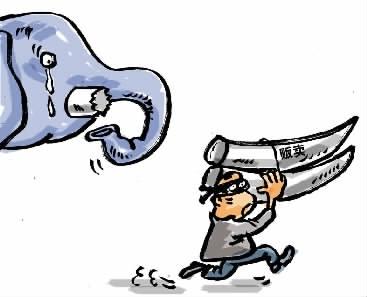You are listening to NEWS Plus Special English. I'm Mark Griffiths in Beijing.
Chinese police will start a crackdown on gambling and prostitution, focusing on gangs that offer protection for the illegal activities.
According to the Ministry of Public Security, the action is targeted at criminals organizing, forcing, harboring and introducing women for prostitution as well as groups operating and providing an "umbrella" for gambling activities.
Key venues for the crackdown include clubs, bath houses, massage parlors and Internet cafes. It remains unknown as for when the campaign will start or how long it will last.
The ministry urged police to ensure culprits receive due punishment and concerned venues correct their businesses, warning that officers who fail to fulfill their duties to stem gambling and prostitution in their jurisdictions will be held accountable.
The statement noted that police officers who take part in gambling and prostitution or protect violators by informing them of planned raids beforehand will be dismissed, underlining the underhand ties between some gangs and police officers.

This is NEWS Plus Special English.
Recent cases involving illegal trafficking and sales of endangered wild animals have heightened the grim challenges of China's battle to protect wildlife.
In early November, customs officers in Guangdong Province seized 2,700 frozen pangolins. The animals have been taken from the wild from several Southeast Asian countries and shipped to China. Most of the pangolins were quite young, and unskinned.
Last month, Beijing forestry police seized 800 kilograms of ivory, along with rhino horns and bear claws. In mid-November, two men in southwestern China's Sichuan province were detained for trading more than a ton of bear meat and fat, which are believed to cure rheumatism.
October saw the start of a two-month campaign against poaching, trading and smuggling wild animals across China.
Wildlife smuggling crimes can lead to at least 10 years in prison, but harsh punitive measures have not deterred the perpetrators. Custom officials say wildlife crime has taken on new traits in the last few years, with increased cross-border trade and online transactions.












